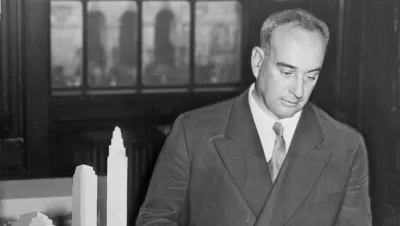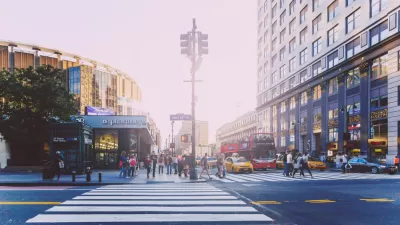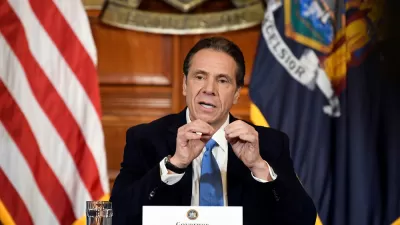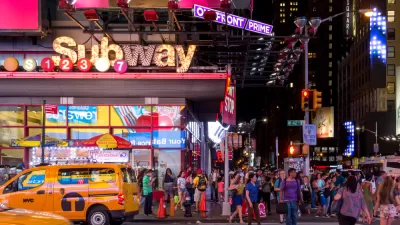In a deep dive into the sad state of the nation's busiest transit hub, Marc J. Dunkelman raises a dispiriting question. In their zeal to ward off future Robert Moseses, have progressives crippled government's power to carry out its job?

"Penn Station is the second most heavily trafficked transit hub in the world, trailing only Tokyo's Shinjuku Station," Marc J. Dunkelman writes. "For more than a generation, New York's most important gateway has been a grimy relic." Determining exactly why that is led Dunkelman on a lengthy investigation into how the politics of infrastructure have evolved in New York City.
His conclusion: Penn Station has languished because political progressives fear the power Robert Moses once wielded and have defanged it over time, tying their own hands along the way. "No one has the leverage to fix [Penn Station]. The sad state of America's most important train station stems more from a failure of power than a failure of leadership. And shockingly enough, that's not by mistake—it's by design."
Dunkelman argues that the publication of Robert Caro's seminal work on Moses, The Power Broker: Robert Moses and the Fall of New York, marked the starting point for an anti-power strain on the left that worked in concert with the anti-government right, in reality if not in rhetoric, to undermine public sector effectiveness.
He writes, "Even as progressives have championed Big Government, they've worked tirelessly to put new checks on its power—to pull it away from imperious technocrats who might use government to bulldoze hapless communities. And it's that impulse to protect the powerless from the abuse of public power that is most responsible for the morass that is Penn Station."
Dunkelman's narrative traces how increasingly unambitious plans have been put forward to remake the station, only to run up against a dynamic in which "where so many players can exercise a veto, it's nearly impossible to move a project forward." He goes on, "The Trump era may not be the moment to extol the virtues of unchecked executive power. But Penn Station's story suggests that, for those hoping to achieve traditionally progressive aims, America's cultural aversion to power has gone too far."
FULL STORY: This Is Why Your Holiday Travel Is Awful

Planetizen Federal Action Tracker
A weekly monitor of how Trump’s orders and actions are impacting planners and planning in America.

Map: Where Senate Republicans Want to Sell Your Public Lands
For public land advocates, the Senate Republicans’ proposal to sell millions of acres of public land in the West is “the biggest fight of their careers.”

Restaurant Patios Were a Pandemic Win — Why Were They so Hard to Keep?
Social distancing requirements and changes in travel patterns prompted cities to pilot new uses for street and sidewalk space. Then it got complicated.

Platform Pilsner: Vancouver Transit Agency Releases... a Beer?
TransLink will receive a portion of every sale of the four-pack.

Toronto Weighs Cheaper Transit, Parking Hikes for Major Events
Special event rates would take effect during large festivals, sports games and concerts to ‘discourage driving, manage congestion and free up space for transit.”

Berlin to Consider Car-Free Zone Larger Than Manhattan
The area bound by the 22-mile Ringbahn would still allow 12 uses of a private automobile per year per person, and several other exemptions.
Urban Design for Planners 1: Software Tools
This six-course series explores essential urban design concepts using open source software and equips planners with the tools they need to participate fully in the urban design process.
Planning for Universal Design
Learn the tools for implementing Universal Design in planning regulations.
Heyer Gruel & Associates PA
JM Goldson LLC
Custer County Colorado
City of Camden Redevelopment Agency
City of Astoria
Transportation Research & Education Center (TREC) at Portland State University
Camden Redevelopment Agency
City of Claremont
Municipality of Princeton (NJ)





























